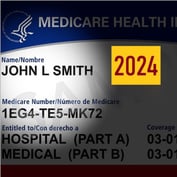What You Need to Know
- Three crises are coming. And they’re all coming at about the same time.
- You know all about the crisis surrounding the Social Security trust fund.
- Did you know about the two other threats?
A crisis is coming. Strike that. Three crises are coming. And they’re all coming at about the same time. This trifecta will mostly hurt workers under age 50. Got any of those among your client base?
You’ve likely neither begun to warn your clients nor have altered your advice to them — in no small part because you’re probably unfamiliar with two of these crises.
Time for you to get up to speed.
You know all about the crisis surrounding the Social Security trust fund.
By 2033, it’s going to be depleted — and that means that retirement benefits for all Social Security recipients will suffer a massive 23% cut. This problem exists because baby boomers refuse to die by age 80 like they’re supposed to; they insist on living into their 80s, 90s and 100s.
Meanwhile, there are fewer workers paying FICA taxes. The result: The Social Security Administration is collecting only 77% of the revenue it needs to pay benefits to all those retirees. It’s been dipping into the trust fund to make up the shortfall, but that fund runs dry in less than 10 years. At that point, SSA will only be able to pay out what it collects in taxes — and that’s just 77% of current benefit amounts.
This is indeed a crisis, considering that half of the nation’s retirees get half of their income from Social Security.
But you already know that.
But did you know about the two other crises? The first pertains to the Hospital Insurance Trust Fund, which makes payments to hospitals. Never heard of it? It’s also known as Medicare.
The HITF is projected to exhaust its reserves as soon as 2028 — which will result in an 11% across-the-board cut in spending. That not only threatens the financial stability of hospitals nationwide but also will limit access to health care for Medicare patients.
Policy experts, including Marc Goldwein, senior policy director at the Committee for a Responsible Federal Budget, a recent guest on my podcast, have created solutions to avert the crisis: reducing overpayments to skilled nursing facilities, removing inefficiencies in Medicare Advantage, eliminating the tax deduction for health insurance.
All these ideas are as pleasant as watching the Patriots play on Sunday, and for Bostonians, just as unavoidable.












 Copyright © 2024 ALM Global, LLC. All Rights Reserved.
Copyright © 2024 ALM Global, LLC. All Rights Reserved.